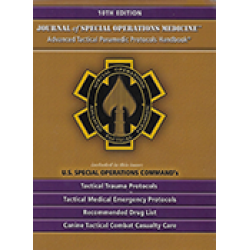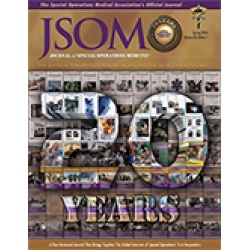Influence of a Multitask Paradigm on Motor and Cognitive Performance of Military and Law Enforcement Personnel: A Systematic Review
20(1). 72 - 80 (Journal Article)
Purpose: To review the current literature investigating if performance of tactical athletes under multitask paradigms is different than performance under single-task paradigms. Methods: The authors completed a search of the literature published from January 01, 2000, to June 01, 2018, using key search terms in PubMed, Web of Science, SPORTDiscus, and Defense Technical Information Center (DTIC) databases. Studies that met inclusion and exclusion criteria were assessed for quality. Results: Fourteen articles were identified as eligible to be included in the review. Compared with single-task, two studies reported better motor performance, six reported poorer motor performance, and three reported no difference in motor performance under multitask. Compared with single- task, two studies reported better cognitive performance, seven studies reported poorer cognitive performance, and three studies reported no difference in cognitive performance under multitask. Conclusion: As occupational duties become increasingly demanding, it is crucial to modify and adapt performance assessments to meet the needs required of tactical athletes to guide training and injury management programs. Motor and cognitive assessments are an integral part of performance evaluations to train, prepare, and rehabilitate tactical athletes. To meet the modern demands of tactical athletes, varying levels of difficulty in multitask paradigms that include both motor and cognitive tasks should be investigated to understand fundamental performance under operational settings to better translate across training paradigms and rehabilitation programs.


 English
English 




